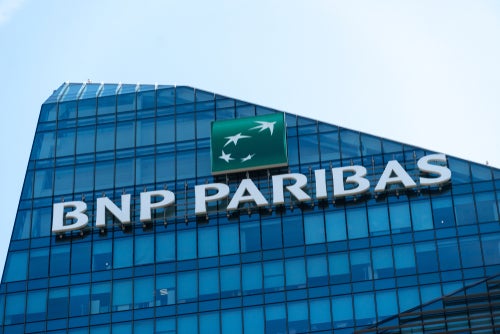Despite all the challenges thrown at us over the last few years, the business community worldwide has shown itself to be incredibly agile, adaptable, and resilient. Isabelle Loc, CEO of BNP Paribas Leasing Solutions, looks at the challenges ahead for the business community in 2023.
The operating environment is changing rapidly and regularly, meaning best-laid plans may be fit-for-purpose one day, and out of date the next. But just as the world of work transformed itself to address the challenges posed by the pandemic, so too can we implement the solutions need to tackle climate change and achieve the energy transition.
In the coming months and years, asset investment is set to be a focus area for many, if not all, organisations looking to deliver on their sustainability commitments and contribute to global ambitions for a net zero economy by 2050.
The annual spend needed to achieve this transition is estimated in the trillions, with a considerable proportion of capital directed towards funding physical assets as businesses redesign operations to decarbonise.
According to business consultants Gartner, 87% of business leaders expect to increase their organisation’s investment in sustainability over the next two years, driven by pressure from customers, investors, and regulators. Of course, much of this spending will be on technology, which remains a key component of competitiveness and resilience, as well as a driver of climate solutions.
While sustainable transformation can be costly, it is now widely seen as a driver of growth. 80% of business leaders agree that green investment enables their organisation to optimise and reduce costs and 86% say it protects against disruption, according to Gartner’s findings.

US Tariffs are shifting - will you react or anticipate?
Don’t let policy changes catch you off guard. Stay proactive with real-time data and expert analysis.
By GlobalDataAs a result, organisations are undergoing transformation at speed, but predictability and affordability will be important considerations. With these factors at play and a cautious economic outlook, savvy organisations are opting for access over asset ownership to conserve capital, while making the necessary investment in modern, scalable assets.
Lessors can play a proactive role in supporting the adoption of green technology, working with different sectors to redirect investment to low or no-carbon assets. As the transition accelerates there will rightly remain a huge focus on the shift to clean energy, but we cannot stop there.
Research by the Ellen Macarthur Foundation shows that renewables can only address 55% of global emissions, with the remaining 45% attributed to how we make and use products and materials.
The Circular Economy Action Plan is a key component of the EU’s Green Deal, the landmark piece of legislation designed to deliver the world’s first carbon-neutral continent. It aims to provide a new operating model that ends single-use consumption and creates a system where assets remain in use through several cycles of ownership.
Leasing is undoubtedly a tried and tested approach to procurement, but it now has new and important implications for the climate and the economy, aiding the adoption of the circular economy right across the value chain. Through leasing, manufacturers and suppliers of professional equipment are encouraged to design and launch offers oriented towards use and reuse.
Similarly, leasing can also help to accelerate the switch from traditional ownership models to product-as-a-service, where assets – from electric vehicle chargers to zero tailpipe trucks, to energy-efficient lighting – are carefully managed throughout the lifecycle to derive maximum value and utility.
Agricultural and construction are notable examples of industries moving toward circularity, with suppliers offering reconditioned equipment available through financing programs, that include warranty and maintenance.
There are undoubtedly turbulent times ahead as we tackle huge global challenges. But where there is a challenge, there is always opportunity. The World Economic Forum estimates that transitioning to a nature-positive economy could generate business opportunities worth over $10 trillion and nearly 400 million jobs by 2030. Organisations that embrace the transition and invest in future fit operations stand to make enormous gains.
I expect 2023 to be a big year for my industry as we continue to explore how leasing can support our partners and clients with their transformation and transition goals, and by providing financial predictability in today’s unpredictable world.









